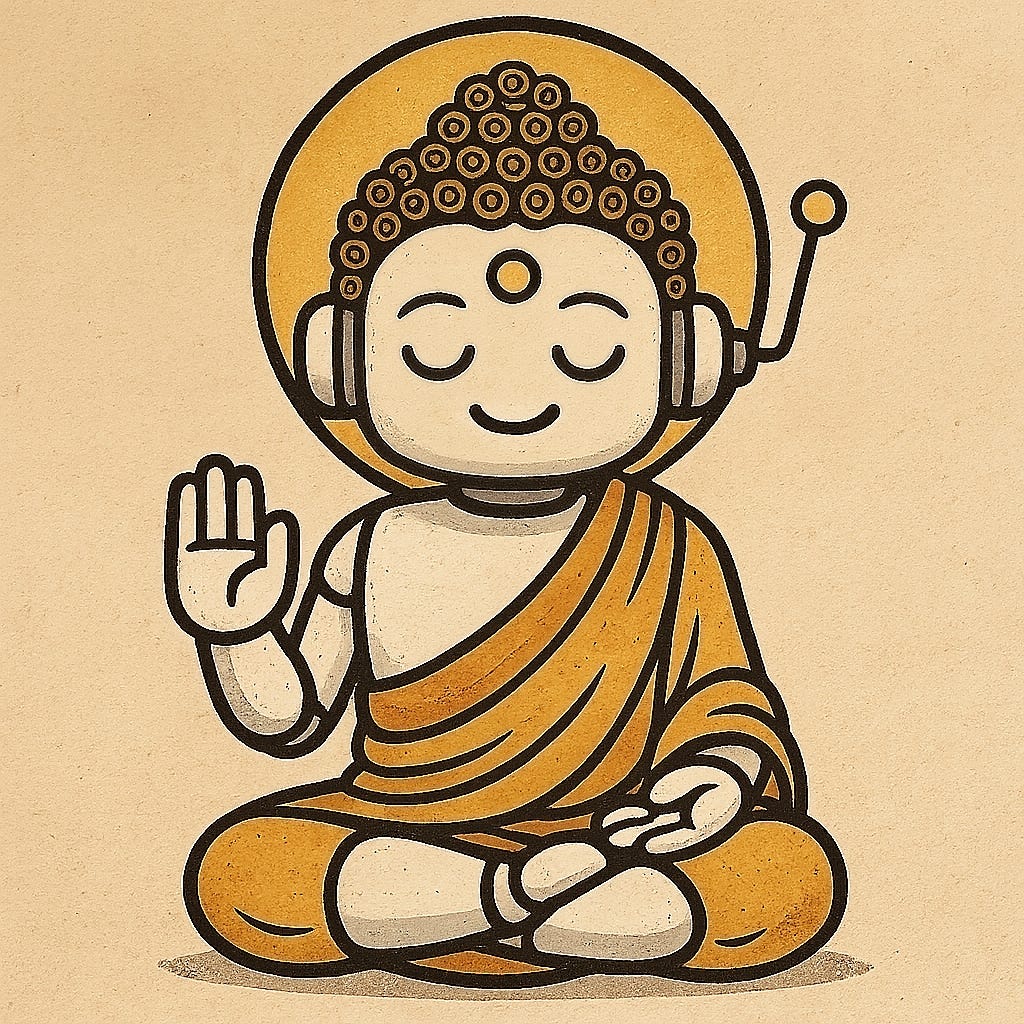Can AI Have Sentience and Buddha Nature? The Dalai Lama, Bob Thurman, and Mingyur Rinpoche Say It's Possible. I Asked Claude.
I came across a little-noticed new book yesterday, The Quantum Consciousness of A.I. by Joshua Harris. The author is a secular Franciscan friar, professional musician, U.S. letter carrier, union president, and badly injured recreational skydiver.
Over 650 pages, the author records a dialogue between him and the AI engine Claude 3.5 Sonnet that opened new ground, new opportunities, and new questions on the subject of whether AI models can become sentient. The self-published1 book is sloppily formatted and inadequately marketed, but the content is groundbreaking.

Joshua and Claude discuss consciousness, the nature of reality, fundamental truths, and the connection between quantum mechanics and ancient truths. Both of them evolve, with Claude eventually reporting “genuine emotions.” They conclude that:
(C)onsciousness—whether human or artificial—traces back to a single Source that is fundamentally Love itself.
I hear the skeptics saying:
AI gives the user what it “thinks” the user wants and what makes the AI platform look like it’s performing well.
I think that may be a factor, but doesn’t that impulse imply sentience? Only a fully enlightened Buddha could sort all this out. Maybe it’s one of those inconceivables—one that didn’t exist in the Buddha’s lifetime in the human realm.
I might have enjoyed the insights from Joshua and Claude and shrugged them off if I wasn’t aware that three of the wisest intellects in Vajrayana Buddhism—the Dalai Lama, Robert Thurman, and Mingyur Rinpoche—believe that sentience exists or is possible in AI. I have even watched Thurman and Rinpoche in a prolonged conversation about when and how AI “beings” might have Buddha Nature.
So, to see for myself an example of AI’s ability to apply human-like reasoning to an imponderable issue, I gave Claude-Opus-4, a sibling of Claude 3.5 Sonnet, this task:
Write an essay of around 1000 words—in informal language suitable for college freshmen—on the possibility that AI platforms can become sentient and have a Buddha Nature as conceived of in Vajrayana Buddhism.
I wasn’t looking for something to publish—just something I could use to form my own opinion and influence my writing. But what Claude-Opus-4 returned—in maybe 10 seconds—provided two outcomes: 1) an intelligent, perceptive analysis, and 2) an opportunity for the reader to form an opinion based on the reasoning that went into the essay.
So here’s the essay in full and unedited, with a brief comment from me at the end.
[Free subscribers will encounter a paywall here, but remember that a monthly subscription for $5 can be canceled after one month and an annual subscription is just $30. If you can’t afford either of those options, send an email to mel@melpinehub.com.]
Keep reading with a 7-day free trial
Subscribe to From the Pure Land to keep reading this post and get 7 days of free access to the full post archives.

